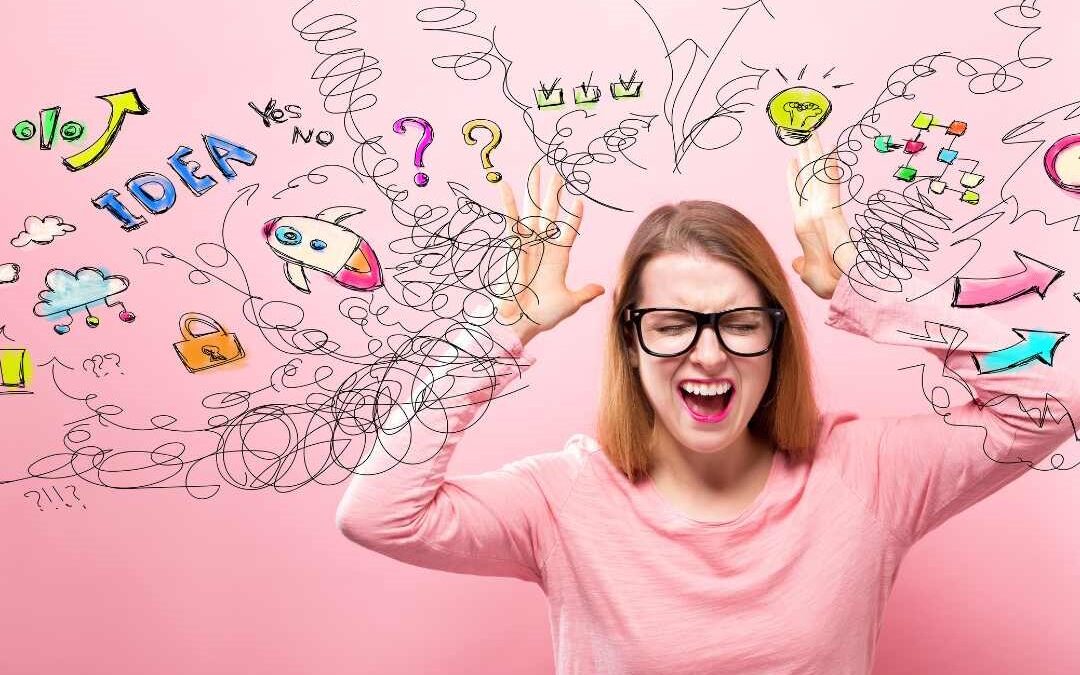“I’m too ADD to meditate.”
“I tried, but I wasn’t good at it.”
“I don’t have the right personality for meditation.”
I hear these words so often and each one of them is based on a misinterpretation of meditation, 100% of the time. Many people with Attention Deficit Disorder (ADD) believe they can’t meditate. The common misconception is that meditation requires a perfectly quiet mind, which seems impossible for those whose thoughts are constantly racing. However, meditation is not necessarily about achieving a state of complete mental stillness. In fact, meditation can be incredibly beneficial for people with ADD, offering a pathway to greater focus, calm, and self-awareness.
The idea that meditation demands an empty mind is widespread but misleading. Many people, regardless of whether they have ADD, struggle with intrusive thoughts during meditation. The goal of meditation is not to eliminate thoughts completely (which isn’t possible) but to develop a different relationship with them. It’s about learning to observe thoughts without getting caught up in them and gently bringing the focus back to the present moment.
For individuals with ADD, the mind is often a whirlwind of activity, jumping from one thought to another. This can make traditional meditation practices, which emphasize prolonged periods of stillness and silence, seem unattainable. However, various forms of meditation can accommodate and even harness this mental energy.
Before we dive into the meditation techniques that can work with mental energy, meditation can offer several benefits for those with ADD:
- Improved Focus: Improve connectivity in the prefrontal cortex, a brain region involved in impulse control, planning, focus, and dopamine levels. Regular meditation practice can help train the brain to sustain attention and reduce distractibility. This is achieved through exercises that involve focusing on a single point, such as the breath, a sound, or a visual object.
- Increased Self-Awareness: Meditation encourages mindfulness, which is the practice of being fully present in the moment. This heightened awareness can help individuals recognize when their attention is drifting and gently guide it back.
- Reduced Stress and Anxiety: Meditation has been shown to lower stress levels and reduce symptoms of anxiety. For people with ADD, who often experience high levels of stress and frustration, this can be particularly beneficial.
- Enhanced Emotional Regulation: By cultivating mindfulness, meditation can help individuals with ADD better understand and manage their emotions, leading to improved emotional stability and resilience.

Some of the most beneficial meditation techniques for individuals with ADD include:
- Guided Meditation: Where you give your brain something to focus on and often encompasses many of the following techniques.
- Mindfulness Meditation: Focus on the present moment, without judgment, and observe your thoughts, emotions, and physical sensations.
- Mantra Meditation: Use a mantra or phrase to help you focus and calm your mind.
- Movement Meditation: Engage in physical activities, such as yoga, tai chi, or chi gong, that combine movement with mindfulness.
- Walking Meditation: Pay attention to your breath and the sensation of your feet touching the ground while walking.
One specific technique that can be particularly effective for people with ADD is Max Meditation. Max Meditation combines several elements, including deep relaxation, guided visualization, passive meditation, and active meditation, making it a versatile and accessible practice for both the novice or experienced meditator alike.
- Deep Relaxation: The session begins with a deep relaxation exercise, where you are guided to relax the body, once the body is relaxed it becomes easier to relax the mind, and attain those states of calm, focus and stillness where all the benefits of meditation are realized.
- Passive Meditation: Participants are encouraged to observe their thoughts without judgment, fostering a sense of mindfulness and self-awareness.
- Active Meditation: Involves focusing on a specific object or thought, training the mind to sustain attention and improve concentration.
- Guided Visualization: This stage involves listening to guided imagery, which can help engage the mind and reduce wandering thoughts.
- Soothing Down: Peaceful returning back to awareness and alertness
Max Meditation’s structure and variety makes it particularly well-suited for individuals that have had trouble meditating in the past such as those with ADD. The guided components provide a focal point that can make it easier to stay engaged, while the deep relaxation techniques help calm the hyperactive mind. I host Max Meditations for people in the Melbourne area on Tuesday’s at Noon and Wednesdays at Halo Salt Cave. If you’d like to learn more, view my calendar of events for details.
Meditation is a powerful tool that can benefit everyone, including those with ADD. By dispelling the myth that meditation requires an empty mind and embracing practices like Max Meditation, individuals with ADD can find a path to greater focus, calm, and emotional well-being. The journey of meditation is not about achieving perfection but about developing a practice that works for you and brings more peace and joy into your daily life.

Written by Sue Rapley
More From This Category

Riding Life’s Waves with Meditation
Life is full of waves; some gentle, some crashing, but meditation teaches us how to ride them with grace. It’s not about achieving perfection but about finding balance amidst the ebb and flow. Through meditation, we learn that just like in life, we may lose focus, stumble, or feel overwhelmed, but we always have the next breath to realign. This practice isn’t about escaping the waves; it’s about strengthening our ability to navigate them with resilience, presence, and self-compassion

My Gift to You: Inner Peace
Life can sometimes feel like chaos, but within that chaos lies an invaluable tool: meditation. It’s not just about finding peace; it’s about nurturing our mental and physical well-being for a more fulfilling life.
No Results Found
The page you requested could not be found. Try refining your search, or use the navigation above to locate the post.

